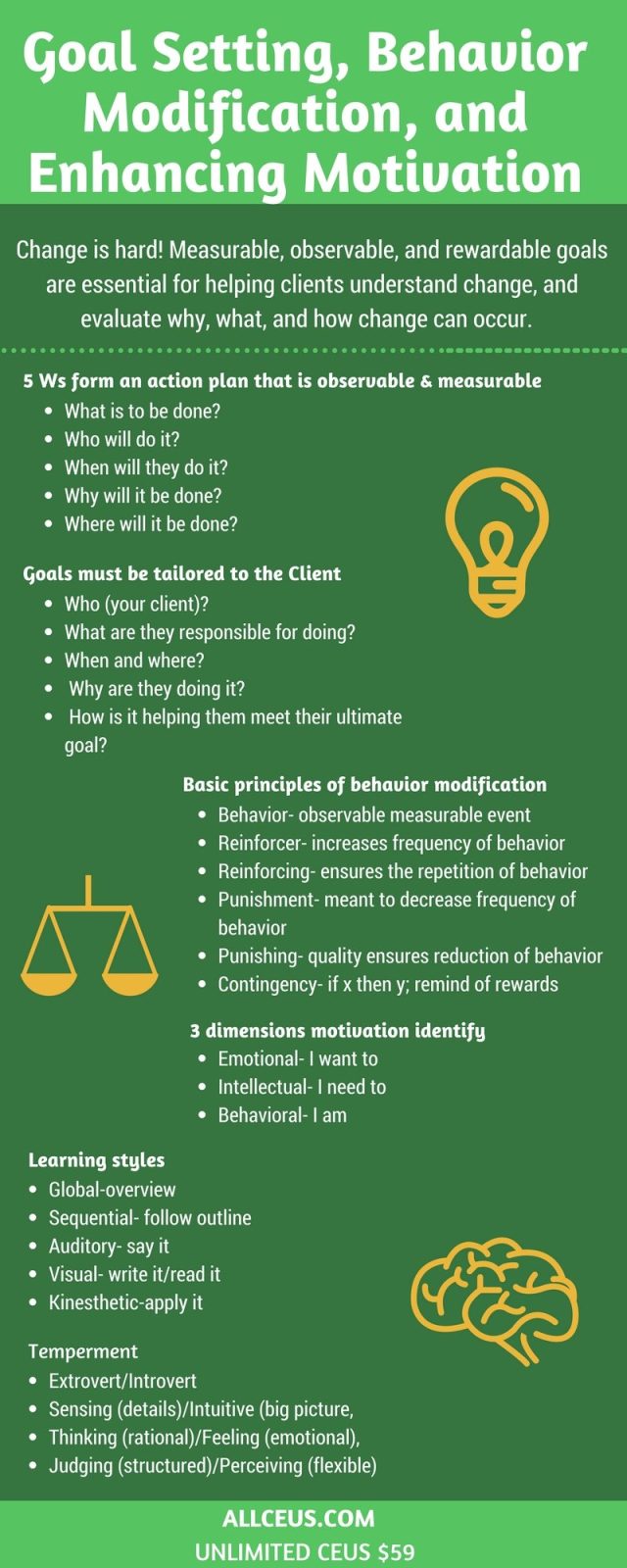
Goal Setting, Behavior Modification, and Enhancing Motivation
Change is hard! Clients come to counseling with change in mind. This presentation illustrates how to create measurable, observable, and rewardable goals that are essential for helping clients understand change, and evaluate how change can occur.
In order to help clients change, counselors must help them achieve smaller goals, by building skills and gaining knowledge. Counselors can add positive rewards instead of removing negative outcomes. Therefore, goals are broken down in to observable, measurable, and rewardable objectives. Specific interventions that help with goalsetting are: the miracle question, writing activities, and finding exceptions. These interventions can help shape individualized treatment plans so vital for client progress. Each goal is directly related to each clients’ skills and knowledge.
Specifically, using the 5 Ws to outline the client’s plan, at their pace, designed to make their goals. The 5 Ws are:
- What is to be done?
- Who will do it?
- When will they do it?
- Why will it be done?
- Where will it be done?
Behavior modification and motivation influence clients progress towards change. A behavior is an observable measurable event. Counselors can use reinforcers to increase behaviors and ensure repetition. Everything has a contingency; if X then Y.
Counselors can help clients understand contingencies in their behavior by exploring behavioral, emotional, and intellectual sources of motivation and keeping in mind learning styles and temperament. People do the best they can with the tools they have, and it is so important that counselors know how to teach clients how to use their tools.
View the Counseling CEU course for this presentation.
This course is also included in our unlimited CEU packages.
